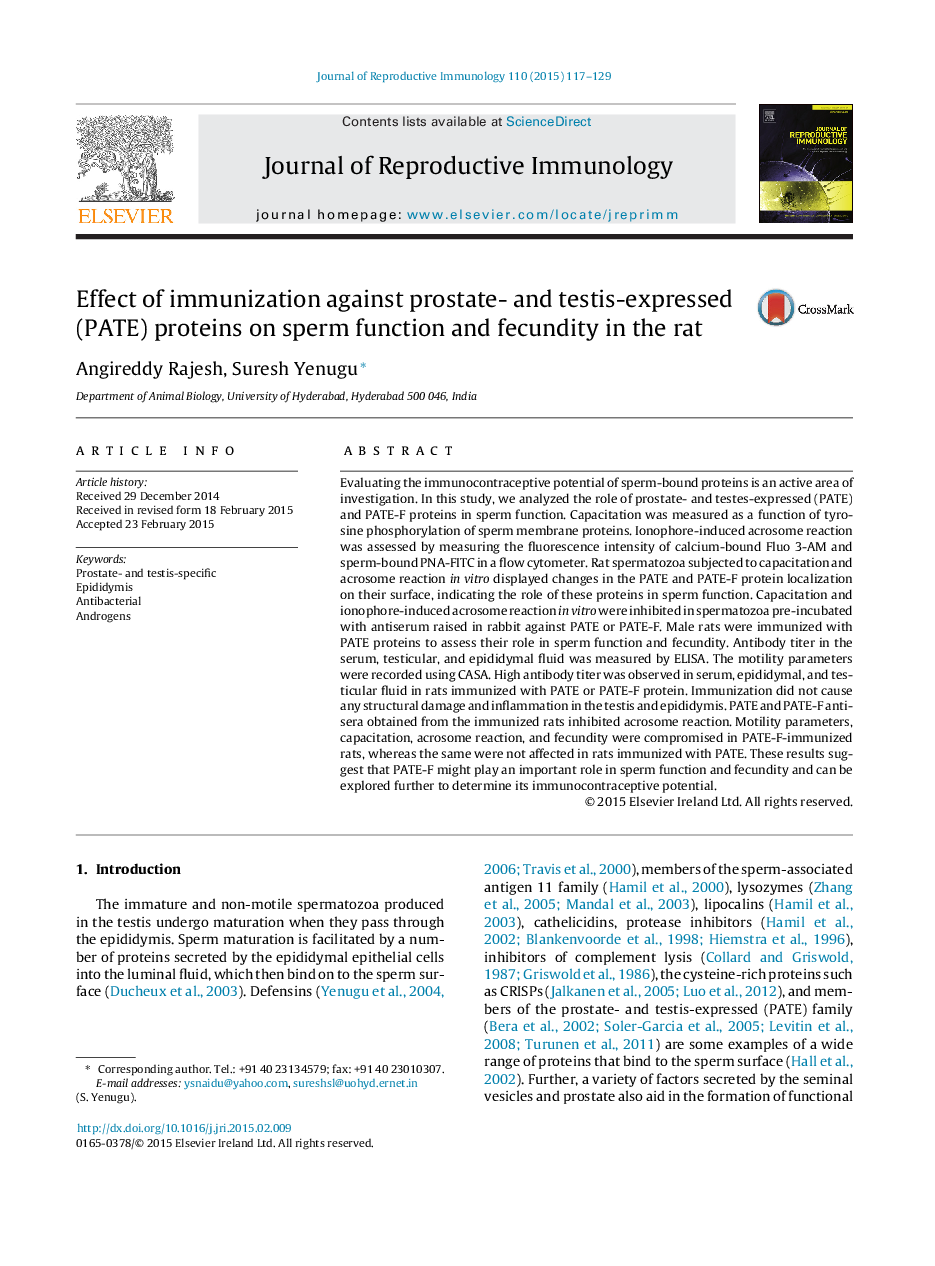| Article ID | Journal | Published Year | Pages | File Type |
|---|---|---|---|---|
| 6188515 | Journal of Reproductive Immunology | 2015 | 13 Pages |
Abstract
Evaluating the immunocontraceptive potential of sperm-bound proteins is an active area of investigation. In this study, we analyzed the role of prostate- and testes-expressed (PATE) and PATE-F proteins in sperm function. Capacitation was measured as a function of tyrosine phosphorylation of sperm membrane proteins. Ionophore-induced acrosome reaction was assessed by measuring the fluorescence intensity of calcium-bound Fluo 3-AM and sperm-bound PNA-FITC in a flow cytometer. Rat spermatozoa subjected to capacitation and acrosome reaction in vitro displayed changes in the PATE and PATE-F protein localization on their surface, indicating the role of these proteins in sperm function. Capacitation and ionophore-induced acrosome reaction in vitro were inhibited in spermatozoa pre-incubated with antiserum raised in rabbit against PATE or PATE-F. Male rats were immunized with PATE proteins to assess their role in sperm function and fecundity. Antibody titer in the serum, testicular, and epididymal fluid was measured by ELISA. The motility parameters were recorded using CASA. High antibody titer was observed in serum, epididymal, and testicular fluid in rats immunized with PATE or PATE-F protein. Immunization did not cause any structural damage and inflammation in the testis and epididymis. PATE and PATE-F antisera obtained from the immunized rats inhibited acrosome reaction. Motility parameters, capacitation, acrosome reaction, and fecundity were compromised in PATE-F-immunized rats, whereas the same were not affected in rats immunized with PATE. These results suggest that PATE-F might play an important role in sperm function and fecundity and can be explored further to determine its immunocontraceptive potential.
Keywords
Related Topics
Life Sciences
Immunology and Microbiology
Immunology
Authors
Angireddy Rajesh, Suresh Yenugu,
